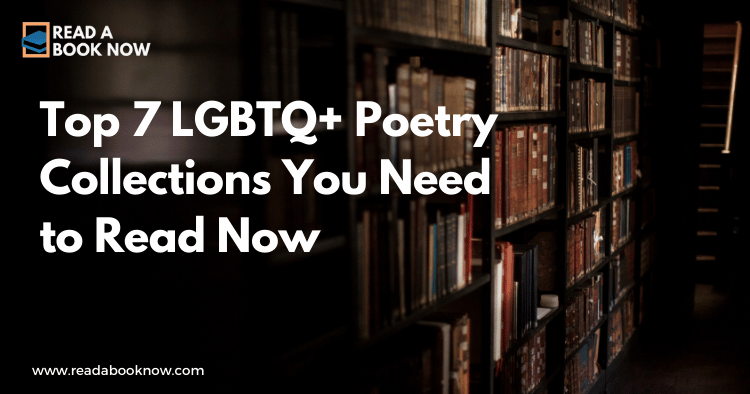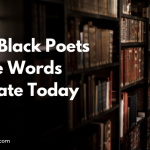Table of Contents
- Introduction
- 1. “The Tradition” by Jericho Brown
- 2. “The Black Unicorn” by Audre Lorde
- 3. “I’m So Fine: A List of Famous Men & What I Had On” by L. S. McKee
- 4. “Don’t Call Us Dead” by Danez Smith
- 5. “The Carrying” by Ada Limón
- 6. “Ariel” by Sylvia Plath
- 7. “The Sun and Her Flowers” by Rupi Kaur
- Conclusion
- FAQs
Introduction
Poetry has long been a powerful medium for expressing identity, love, and resistance. In the LGBTQ+ community, poetry serves as an essential voice, capturing the nuances of experience, resilience, and celebration.
Whether you’re searching for a deeply personal connection or a new perspective, these collections highlight the rich tapestry of LGBTQ+ voices.
Here are seven must-read poetry collections that resonate, inspire, and challenge the status quo.
1. The Tradition by Jericho Brown
Jericho Brown’s “The Tradition” is a profound exploration of race, sexuality, and the complexities of human relationships. Published in 2019, this Pulitzer Prize-winning collection addresses the intersections of pain and beauty, often drawing from his own experiences as a Black gay man.
Brown’s poetry is marked by its innovative form, notably his use of the “duplex”—a unique structure that blends narrative and lyrical elements.
This collection delves into themes of love, loss, and the struggle for identity in a world rife with prejudice.
Why You Should Read It: Brown’s work is not only beautifully crafted but also speaks to the heart of contemporary issues facing the LGBTQ+ community.
Read more about Jericho Brown.
2. The Black Unicorn by Audre Lorde
Audre Lorde’s “The Black Unicorn,” published in 1978, is a groundbreaking collection that blends the personal with the political. Lorde, a self-identified Black lesbian feminist, challenges societal norms and expectations through her powerful verses.
Her poems in this collection address issues of race, sexuality, and feminism, making her voice essential for understanding intersectional identity. The title poem, “The Black Unicorn,” symbolizes the struggle for authenticity and self-acceptance.
Lorde’s work remains relevant today, as it confronts the societal structures that marginalize voices and experiences.
Why You Should Read It: Lorde’s work remains relevant today, as it confronts the societal structures that marginalize voices and experiences.
Explore more about Audre Lorde.
3. I’m So Fine: A List of Famous Men & What I Had On by L. S. McKee
L. S. McKee’s “I’m So Fine” is a playful yet poignant collection that juxtaposes fashion with desire. This creative work takes the form of a list, focusing on the poet’s famous crushes while reflecting on themes of longing, identity, and the fluidity of attraction.
McKee’s sharp wit shines through, making the collection both entertaining and thought-provoking. Each poem invites the reader to engage with their imagination and consider the complexities of desire.
This collection is a celebration of LGBTQ+ desire and creativity, making it a refreshing addition to your poetry shelf.
Why You Should Read It: This collection is a celebration of LGBTQ+ desire and creativity, making it a refreshing addition to your poetry shelf.
4. Don’t Call Us Dead by Danez Smith
Danez Smith’s “Don’t Call Us Dead” is a poignant collection that grapples with themes of mortality, race, and the Black queer experience. Released in 2017, it has received critical acclaim for its raw emotion and innovative form.
Smith’s poetry often blends the personal with the political, creating a powerful commentary on systemic violence and the fragility of life.
The collection’s titular poem serves as a powerful reminder of the lives lost in the struggle for justice.
Why You Should Read It: Smith’s work resonates with urgency and relevance, making it essential reading for anyone interested in contemporary issues.
Discover more about Danez Smith.
5. The Carrying by Ada Limón
Ada Limón’s “The Carrying,” published in 2018, is a collection that beautifully intertwines themes of love, nature, and the human experience. Limón’s eloquent language and vivid imagery resonate deeply, making her poetry accessible yet profound.
This collection explores the tension between grief and joy, celebrating the act of carrying both burdens and blessings. Limón’s reflections on identity and belonging add layers of meaning to her work, inviting readers to connect with their own experiences.
Limón’s voice is both soothing and powerful, offering a reminder of the beauty in vulnerability.
Why You Should Read It: Limón’s voice is both soothing and powerful, offering a reminder of the beauty in vulnerability.
6. Ariel by Sylvia Plath
Though not exclusively an LGBTQ+ poet, Sylvia Plath’s “Ariel” has had a profound influence on queer literature and poetry. Published posthumously in 1965, this collection explores themes of identity, mental health, and the complexities of womanhood.
Plath’s intense imagery and emotional depth resonate with many LGBTQ+ readers who find solace in her struggle against societal norms and personal demons.
Poems like “Lady Lazarus” reflect the fight for autonomy and self-definition.
Why You Should Read It: Plath’s work transcends time, and her exploration of identity continues to inspire and resonate with LGBTQ+ readers.
Learn more about Sylvia Plath.
7. The Sun and Her Flowers by Rupi Kaur
Rupi Kaur’s “The Sun and Her Flowers,” published in 2017, is a celebration of love, loss, and self-acceptance. Kaur’s accessible style and relatable themes have made her a beloved voice in contemporary poetry.
This collection is divided into five sections—wilting, falling, rooting, rising, and blooming—each representing a different stage of growth and healing. Kaur’s work often touches on themes relevant to the LGBTQ+ community, including self-love and empowerment.
Kaur’s poetry speaks to a wide audience, making it a perfect entry point for those new to poetry.
Why You Should Read It: Kaur’s poetry speaks to a wide audience, making it a perfect entry point for those new to poetry.
Conclusion
These seven poetry collections are not just books; they are gateways into the rich and diverse world of LGBTQ+ experiences and emotions.
Each poet brings their uniqueSure! Please provide the Markdown content you’d like me to convert to HTML.Sure! Please provide the Markdown content you would like to convert to HTML.
Visited 1 times, 1 visit(s) today



